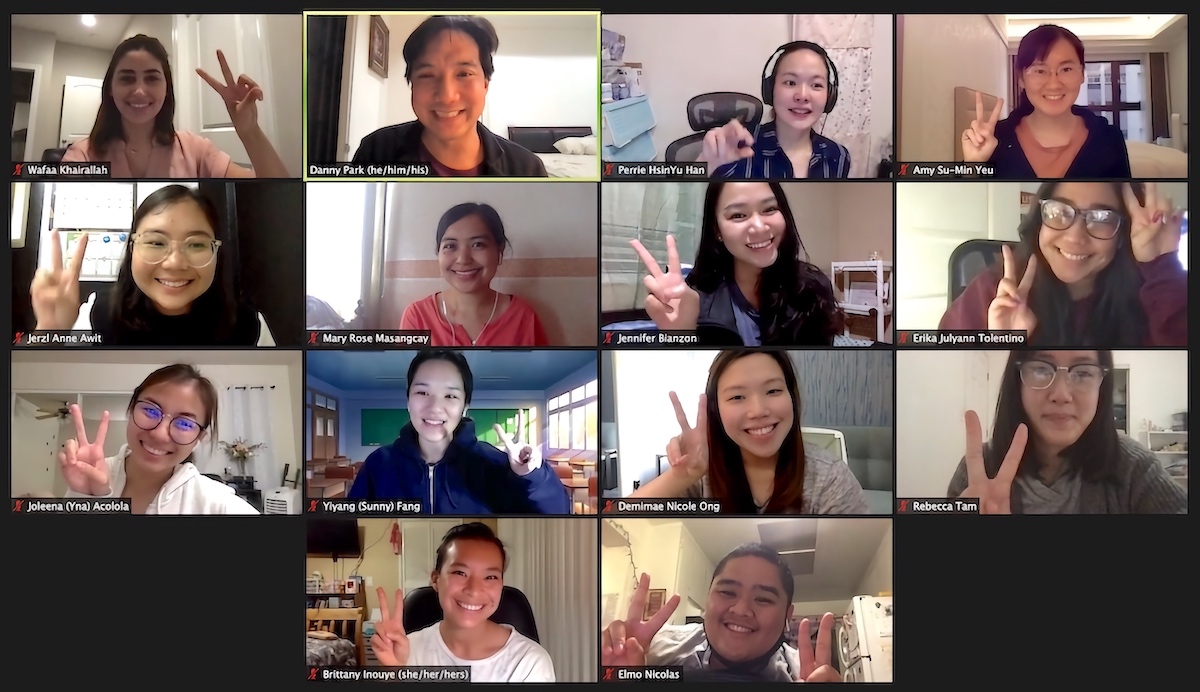Student Blog
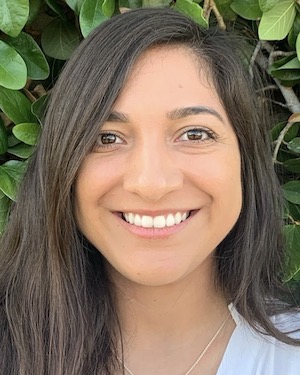
Level II Fieldwork Part I: Almost Complete! ⟩
March 26, 2021, by Liz
I am so bummed that level II fieldwork is almost over—one week to go! 12 weeks literally flew by. If you read my previous blog post about my level II fieldwork placement, I’ve been having a blast the past 3 months. I can confidently say that I feel prepared to practice in a hand therapy setting! Here’s a little bit of what I’ve learned these past three months:
How to complete an initial evaluation
This is so important y’all. Not only is it key for knowing why the patient is coming in/what their primary complaint is, but it is the first interaction that you have with them. This is your chance to begin creating that relationship. At first I was a little nervous. I was so grateful for masks because it made it that much easier to hide how nervous I felt! But, I’ve done so many initial evals that now it’s a piece of cake. There’s so many important questions to ask: have you had surgery? Any steroid injections? How does this affect your ability to do things every day? Do you currently own a splint? Take measurements as needed. And yes, these are all super important, but so is the impression you make. This will determine how comfortable the patient will feel with—can they trust you?
How to explain to patients what in the world is going on
A lot of times patients will come in and have no clue what’s going on. This is why knowing your anatomy and familiarizing yourself with diagnoses is critical. You also have to keep in mind that patients will not usually know what in the world extensor carpi radialis brevis is. Explain in a way that the patient will actually understand! Practicing this is super helpful for when patients say “what is tennis elbow, I don’t even play tennis!”
Prioritize occupations!
I’ve seen folks who come in post surgery and also those who are trying to take care of their condition conservatively. In both cases, I’ve had people ask if they need to stop doing things they love. In some cases, the goal is to get them back to doing those things. I had a client who fractured one of his carpal bones and hasn’t been able to surf for months. Attempting to surf right now probably wouldn’t be the best idea. But, what we’ve been working on is getting his range of motion back and slowly working towards weight bearing so he can push off on his surfboard, wax it, put on his wetsuit, etc.
Documentation
We learned a little bit about this in the hands electives and in adult rehab as well. This is super important for noting what you did with the patient, how they responded to treatment/modalities, what happened, why do they need to continue coming to OT. This looks differently at each site, but to date I’ve written so many SOAP notes I already lost count! SOAP notes are used in several OT settings. It stands for: Subjective, Objective, Assessment, and Plan. These provide information about what the patient said/what they’re reporting, what you observed/measured as a skilled clinician, why they still need to continue seeing you, how are they progressing?, and what the plan is for the next session. You’ll learned more about this when you practice writing SOAP notes in class. 😊
How to actually treat people
Anyone can Google what a trigger finger is. But, what do you actually do when a client comes in with one? This is when I was super grateful for my fieldwork educator. There’s a reason why practicing in a hands setting is considered advanced practice. There’s so much! There’s a lot to know, and everyone’s conditions may present similarly but also be very different. I’ve had the chance to independently treat so many diagnoses including: trigger fingers, wrist fractures, Dupytren’s contractures, carpal tunnel, rheumatoid arthritis, osteoarthritis, cubital tunnel, tennis elbow and even a couple folks who have had amputations—to name a few. I am very happy to say that I’ve felt completely comfortable treating these conditions.
Splints 101
Making splints is tough y’all! It is literally art. For one, there’s different materials to choose from. Some cool faster than others, some are more comfortable for night wear, others are more restrictive. I had the chance to make a couple short opponens splints and a few trigger finger splints as well. My fieldwork educator has so much experience and I’ve seen him create some amazing splints for different people. Making splints is great, but with that comes some client education. Can they bathe with it? Should they sleep with it? Skin checks! Tip #1: Don’t leave it in your car—it might lose its shape with the heat!
Being confident in myself
It’s okay to not know everything. It’s literally been only three months! At first it was rough to come to terms that I wasn’t an expert. But, now that I’ve really got the hang of everything I am so sad that this placement is coming to an end! I’ve learned that it’s okay not to know everything and asking questions is fine. My fieldwork educator once told me, “You might not know it all, but you definitely know more than the patient so believe in yourself”.
So, this is all just a fraction of what I’ve learned so far. After nearly a year of learning from behind a screen, I am so grateful for this experience. It exceeded my expectations of what level II fieldwork would be like. If you have any questions about my placement or want to know more about my experience please feel free to shoot me an email!
⋯
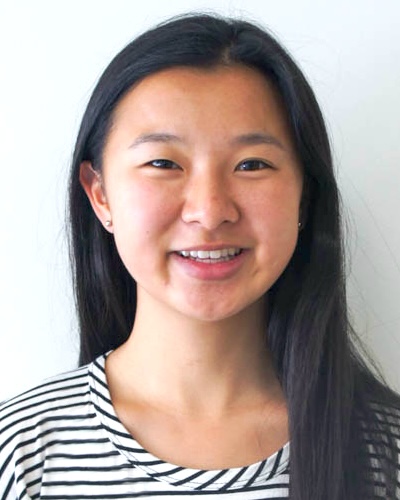
The A-Z’s of USC OT: Part II ⟩
March 22, 2021, by Bethany
Admissions Classes Living in LA What are OS/OT?
In a previous post, I began The A-Z’s of USC OT: Part I. So continuing right where we left off . . .
Occupation — Occupation is, of course, the focus of our profession and one of the focuses of our schooling. We do not compare ourselves to other professions, but rather learn how to advocate for the inherent value of our distinct perspective as OTs.
Program interconnectivity — As a BS-MA student, we get to meet a lot of OS minors through classes and the Pre-OT club. We join up with Entry-Level students for the graduate level curriculum. We get to learn alongside Post-Professional Master’s students and OTD students in our electives, and have PhD students as our TAs. From my experience, students get to interact with OTs in all programs.
Questions and answers — Questions about fieldwork? Scheduling? Applying to the OTD after finishing the Master’s? Clinical experience? Our faculty and staff (and student ambassadors!) are responsive to all of our queries. We are also paired with faculty mentors, who are matched based on our interests.
Rehab lab — In the Center for Health Professions, we have a lab for Adult Physical Rehabilitation that includes a hospital setting, a bedroom, bathroom, and fully-functional. We can practice creating and implementing interventions in a real space. You can check out the room on our virtual tour!
Shuttle — There is free transportation between campuses! The shuttle is accessible to everyone, not just students. And shuttle time is great for conversations, naps, or watching shows on your phone. One of the previous ambassadors, Noelle, recorded her shuttle trip.
Trojan Family — Whether it be cheering our team on to victory, ending up at a fieldwork site with USC alumni, or of course networking through the Trojan Network site, the Trojan Family is inclusive, extensive, and supportive.
Undergraduate Study — USC is one of the few schools to offer an undergraduate degree in Occupational Therapy, which helped me claim my identity as an occupational therapy student and learn to advocate better for the field. We also offer a minor in Occupational Science.
Vibrant student life — Around campus, you will find a bustle of students, whether they be grabbing food at the farmers market or Trader Joe’s or going to football games amidst a sea of cardinal and gold.
Well-established — USC’s OT program lives up to its name. We were the first Master’s degree in OT and the first PhD in OS. We developed Lifestyle Redesign, and we continue to be a top-ranked OT school.
X-amine yourself — Within our classes, we are given opportunities for introspection about how our own beliefs, communication styles, and backgrounds can affect how we come into a client-therapist relationship. For example, we complete a values checklist and share our results with our classmates, leading to (1) introspection, (2) learning to understand and listen to other perspectives, and (3) understanding the position of vulnerability we ask of our clients.
You’re not alone — Whenever I needed help, I had support from faculty. They worked with me to make sure I could participate in band for my senior year while taking classes. They looked at which fieldwork placements best suited my preferences and transportation needs. I’m happy to have resources to go to for anything I need in the program.
Zeal — One thing I have always admired about USC students is their passion. And now, I get to pursue my passion in occupational therapy alongside others who share that zeal to find ways to creatively help others do what they love.
Whew! 26 letters. Felt like a long list, but even so. It cannot sum up the passion for OT and the community that I found these past years. Regardless, I hope that I was able to give you a good glimpse into the program. 😊
⋯
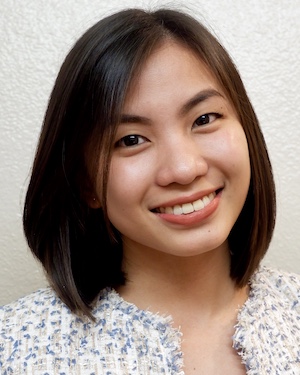
What Made You Decide To Study Abroad? ⟩
March 19, 2021, by Yna
Years ago, when I was still trying to decide whether to stay in my home country or go abroad to pursue a Master’s degree, I employed the usual technique of listing down the pros and cons of each option that I had. It did help a little bit, but what ultimately led me to arrive at a decision was after I asked myself: “What is my goal? What do I want to get out of this?” That’s when I realized that what I was really looking for was something more—an experience that will further strengthen my knowledge and expertise in my chosen field. This is not to say that my education in the Philippines was lacking in any way; I had so much to learn from my university’s rigorous undergraduate program and all its brilliant professors which provided me with the necessary foundations and honed me to be the person that I am. But it is also for this very reason that I found myself with a desire to learn more about how I can apply this knowledge into practice in a manner that will really produce a significant impact to my clients’ lives and even to the larger community.
I was a newly licensed occupational therapist then, barely even worked a year, when I was presented with the opportunity to go to the US. I welcomed the news with both excitement and apprehension, as I was already starting out my career and had all my future plans set out—or so I thought. Making a decision definitely wasn’t an easy feat, with the thought of being separated from my loved ones holding me back the most. Nevertheless, all of my family members and friends were (and still are) very supportive of whatever decision I make—something that I truly appreciate and am very thankful for to this date. As you can tell, I ended up deciding to leave behind the comfortable life that I had for something that’s entirely out of my comfort zone—studying abroad. After performing extensive research about USC Chan and its Post-Professional Master’s program, reading student blogs, consulting various people, I determined that pursuing this road would bring me towards my goal of gaining life experiences that are worthwhile and would add value to my future practice. I felt terrified but at the same time thrilled by the many opportunities that I had imagined this decision would open up for me.
True enough, throughout the time that I have been in the program, I have found myself being the recipient of unique opportunities that I never would have earned in any other place: studying in the #1 ranked OT program in the US, learning from exceptional professors who worked closely with the very people who pioneered OT practice areas such as Sensory Integration and Lifestyle Redesign®, witnessing various breakthroughs in research by many renowned faculty, being part of a supportive community who puts great value in rich perspectives that its diverse students bring to the table, and working as a student ambassador which allowed me to further expand my professional network and enhance a lot of my skills. I put great value in these experiences which is why I feel very satisfied with the choice that I had made back then.
To anyone who is trying to come to a decision on whether to study abroad or not, I unfortunately do not have the answer, but I do have a question for you: What is your goal? I invite you to ask yourself that question that only you could answer, by finding out what you think is worthwhile and in line with what you want to achieve in life.
⋯
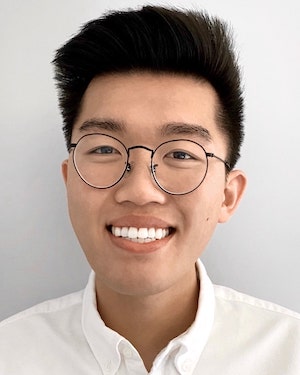
Restorative Occupation on R(OT)ation ⟩
March 15, 2021, by Calvin
Last week was the Week of Restorative Occupations! This eventful week encouraged all students, faculty and staff to engage in restorative occupations. There were daily division-hosted events not limited to baking sessions, cardboard loom-weaving, salsa dance breaks, and joke writing! There’s also a compiled list of General Resources that includes restorative occupations outside of USC that we can all continue participating in. Shoutout to our amazing Webmaster, Paul Bailey, because I’m sure he put in a lot of time and effort to put all of that together 😊! You rock, Paul!
Although the event itself is over, that doesn’t mean we should stop engaging in restorative occupations! This past week was a time to highlight and celebrate the importance of participating in those occupations, and I’m definitely going to keep mine going. One of my favorite occupations is listening to music, so I decided to create a Spotify playlist that really reflects what “restorative” means to me: good energy, happiness, and relaxation. I love to share what I listen to, so I’ll include a preview to my playlist below!
I was actually introduced to a few of these songs in my OT 578: Therapeutic Communication: Facilitating Change in Clients course because Dr. Jesús Díaz would invite students to play music during breaks. He even asked some faculty to send over their playlists — thanks for the new music Dr. Arameh Anvarizadeh and Dr. Sook-Lei Liew, we love good taste!
Feel free to comment down below if you discovered a new song you like or if you want to share some of your favorite songs!
⋯
How USC helped me get through this pandemic, virtually ⟩
March 14, 2021, by Global Initiatives Team
By Wafaa Khairallah
Post-Professional Master’s student
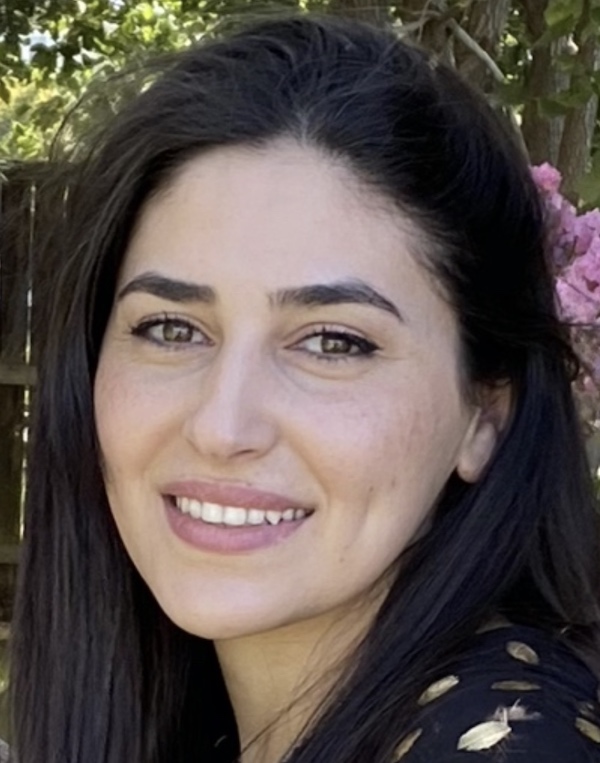
Wafaa Khairallah
Thinking back to 2020 and how it started, I never thought my educational and professional goals would work out the way I wanted, but after all it happily did!! I gladly think that being enrolled at USC as a Post-Professional Master’s (MA1) student has helped me get through those difficult times — not only by keeping me busy, but rather by socially connecting me on a high intellectual level with people with shared interests and ambitions. From a very personal experience, these are some aspects of how I felt USC has helped me to get through the pandemic.
Feeling of inclusion
I imagined that I wouldn’t be able to attend any school in the U.S. as an immigrant who wants to study here while my Green Card application was still pending. Certain universities were even unable to proceed with my admission process because of their policies and limited understanding of how to proceed with my circumstance. It was a little hard for me to navigate this, but fortunately USC was able to go through this process in a much clearer way. This definitely proves USC’s compliance in embracing inclusion for all and with little time to wait, greatly impacted my pursuit through my professional journey.
Networking
As an MA-1 student at USC and a part of the USC Chan Global Initiatives team, I have been impressed by the amount of effort the Division puts into developing collaborative, international partnerships. Specifically, I was very pleased to know that USC has partnered with my home school, Bethlehem University (Palestine), through the Summer Occupational Therapy Immersion program. Being able to connect with global occupational therapists has not only improved my knowledge in many areas related to OT, but has pushed me to also reflect more on how such connections will foster multiple opportunities for many novice, passionate occupational therapists around the globe.
Making new friends
Frankly and as expected, it was not easy for me to move from one country to establish my life in another. I still need to develop new relationships and friendships. As we know, COVID did not make it any easier with all the lockdowns and safety regulations. However, this opportunity was definitely delivered by USC. Now, I am able to say that I have new colleagues and future friends in the program. Although our communication is virtual, we are still able to connect on a personal level; hoping to meet in person in the near future!
⋯






